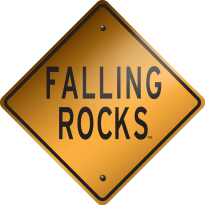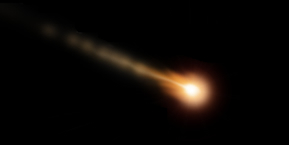
COLLECTION
| Meteorite Name: | Djermaia |
| Location: | Chad, Africa |
| Classification: | H Chondrite |
| Witnessed Fall: | Yes |
| Date and Time: | February 18 or 25, 1961 |
| TKW: | ~ 7.7 kilograms |
| Remarks: |
The Grady Catalog of Meteorites lists the Total Known Weight of the 1961 Djermaia, Chad, witnessed fall at ~ 1 kilogram. The Encyclopedia of Meteorites lists the TKW at 3.95 kilograms, on the heels of a recently located 2947 gram individual which had been in France for some time. Neither is correct. In the spring of 1993, Bob Haag was featured on a major European network's telecast of a special on meteorites. On May 5, 1993, Mr. Serge Caprice, by now living in Martinique, contacted Haag by letter, advising him that he was in possession of a ~ 4 kilogram individual which he found two days after the witnessed fall in Chad. His search had included a flight in a small plane and some traversing of dangerous geography in a Jeep. Haag communicated with Mr. Carpice and his wife, Louise, by telephone, received photographs of the meteorite by mail, and subsequently arranged to visit them in Martinique for the purposes of acquiring the meteorite from them. Their transaction took place on June 18, 1993. Since that time, the meteorite was in Haag's possession and featured at least in his 1997 Field Guide of Meteorites (page 40) and another subsequent release, The Robert Haag Collection of Meteorites (2003, page 104), until I acquired it from him on July 13, 2007. The specimen, in fact, weighed just over 3.7 kilograms, making it the main mass and the actual TKW slightly under 7.7 kilograms. There are several points of additional interest. Mr. Caprice hand painted the fall date on his meteorite shortly after recovery. Conspicuously, the date he affixed to the specimen is "18.2.61," while the official fall date is exactly one week later on February 25, 1961. I do not know if Mr. Caprice perhaps waited some period of time before applying the date -- and perhaps remembered the correct day but missed it by a week -- or if the "official" date itself was misreported for similar reasons. Also of note is Mr. Caprice's description of the reverse craters, or "anthills" that apparently were formed upon impact of the Djermaia meteorite. Haag has never before or since heard of such an account, but the precise drawings he made while visiting with Mr. Caprice paint a very clear picture of this phenomena. Mr. Caprice further asserts that, upon the hunt for this meteorite in dangerous territory with other men working with him in the French administration, five specimens were recovered and he "thinks he got the largest one." Mr. Caprice also recounted that the fireball lit up the entire town (though there were apparently no witnessed detonations, or at least none were reported), and that the Bedouin tribal people in the area claim that a villager was killed by one of the meteorites (this is obviously not confirmed). I am in possession of all original communications, photographs, maps, drawings, notes, receipts and the like, and am currently engaged with the Muséum national d'Histoire naturelle in Paris, France, working to correct the officially recorded total known weight and complete the petrologic classification for this meteorite. |
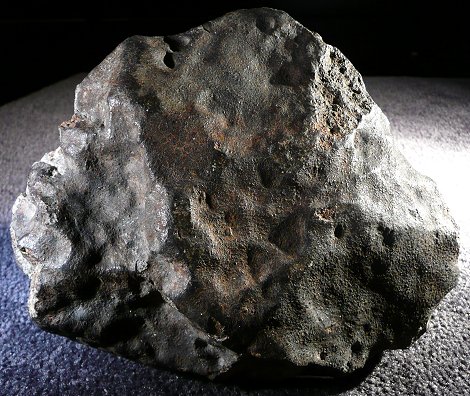 | |
| 3720 gram Main Mass | |
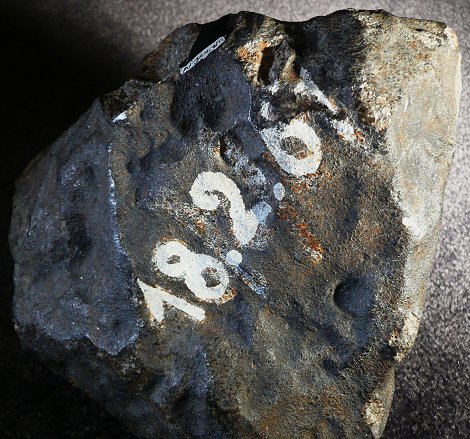 | |
| Reverse angle of 3720 gram main mass with "18.2.61" date inscription | |
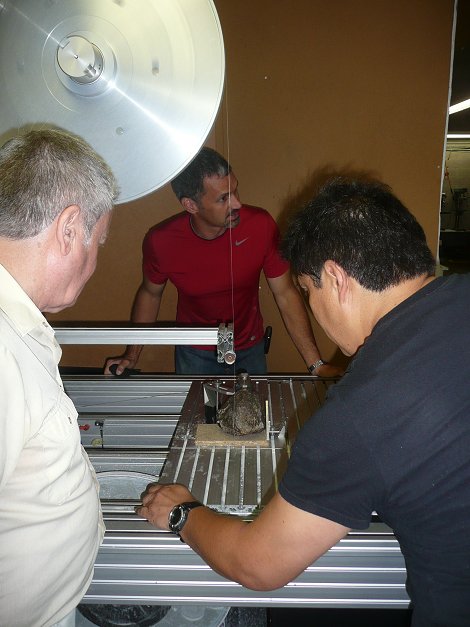 | |
| Removing a small repository sample with a diamond wire saw, which was sent to MNHN in Paris to definitively confirm this specimen's connection match to the originaly repository sample that is housed in France | |
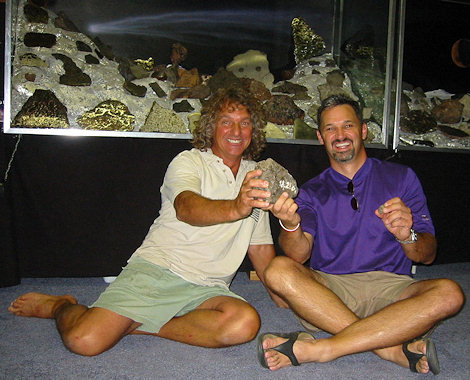 | |
|
With Bob Haag in his vault room and the Djermaia main mass as well as the 21.7 gram crusted end section he removed and cataloged in the 1990s (the latter can now be seen at www.starcatching.com). | |
